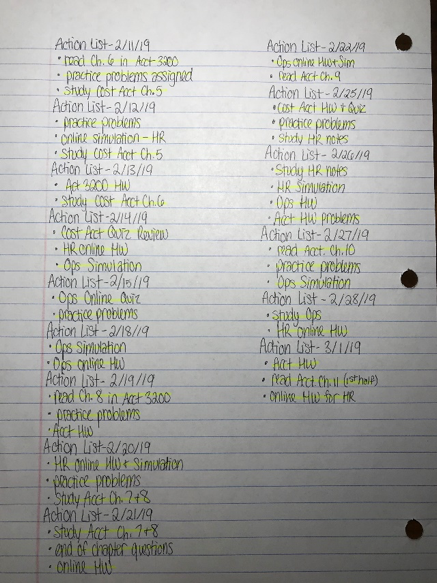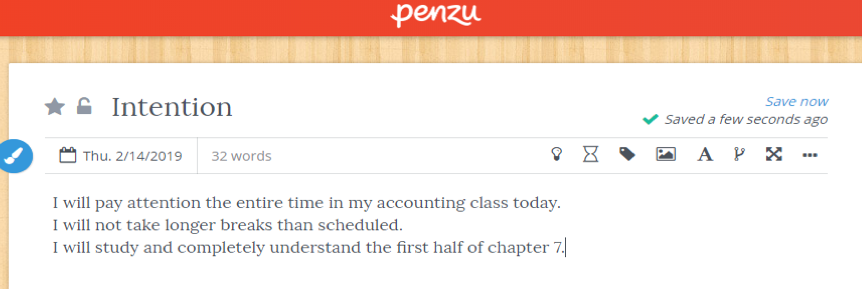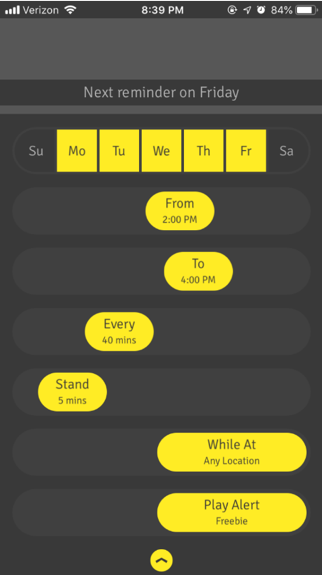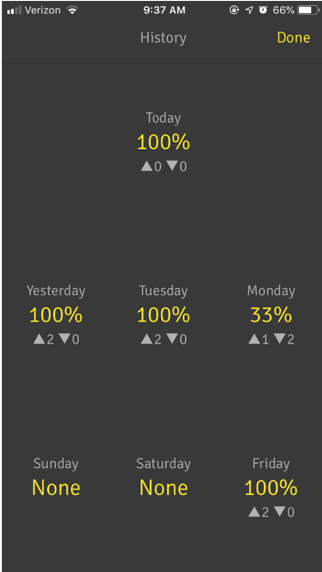Does studying sometimes make you feel like you are actually “stu-DYING”? I get it. I struggle to remain focused while reading through page after page of notes before a big exam. I also find myself cramming the night before which never leads to very good results. Because of this, I chose to read 52 Small Changes for the Mind by Brett Blumenthal. The title of this book is what really stood out to me: who can’t handle small changes, right? It is much easier to implement a small tweak to your lifestyle than to drastically change aspects of your life. While this book offered 52 changes, I chose 3 of them to really focus on. My goal was to begin studying 3 days in advance for my accounting exams; however, this book offers such a wide variety of changes that it could be applied to any goal you set for yourself!
Strategies – I implemented these Monday through Friday for 3 weeks.
1. Action Lists
The author explains that these lists can be used for anything you want to accomplish that day. They are a simple way to stay on track and hold yourself accountable. I wrote down a few things at the start of the day, and then I highlighted them as I completed each task. For example, I wrote down specific chapters I wanted to read or practice problems I wanted to complete. These were very helpful in keeping me from procrastinating because I didn’t like to go to bed until everything on the list was highlighted. Below is a collection of the action lists that I created for myself.

2. Small Breaks
A small break in your studying is good for the mind and body. As the book explains, it gives you a chance to refocus and refresh your mind to continue studying, or whatever task you are working on. I used an app called “Stand Up.” The app allows you to set the length of break you want to have and then will notify you when the break begins and ends. This way your break doesn’t become unproductive. I set my breaks between 2:00 and 4:00 pm because this is when I typically study and do homework throughout the week. My breaks were 5 minutes long, and they occurred every 40 minutes. Below is the app that I used to track my breaks and a summary from one week of tracking.
The app only provides the history for the prior week, so I kept track on my own
the days that I followed the app, and the days when my breaks were longer than
5 minutes. Pictured is a chart
summarizing three weeks’ worth of tracking.

3. Intention Journal
Each morning journal your intentions for the day. The author indicates that your intentions can be very specific, or they can be more general: whatever works best for you and your goals. Then, she advises that you revisit the journal every evening and gauge how well you stuck to your intentions. I chose to use Penzu which is an online journal because it was quicker for me to type my intentions out this way. Pictured below is an example of one of my journal entries.

After I revisited my journal entries at night, I ranked how well I stuck to my intentions for that particular day. I chose a scale from 1 to 10, with 10 meaning I stuck to my intentions exactly. This was crucial to holding myself accountable, and it also forced me to truly reflect and be honest with myself about how well I was performing.

Takeaways
There are many ideas and thoughts that you can take away from these 3 strategies. However, the most important thing I learned from this project is that a change does NOT have to be large and scary to make an impact. Something as simple as an action list in the morning can change your entire day. Don’t be unrealistic, choose changes that you can see working for you and your particular goal.
I also learned that technology CAN be more than a distraction. It can actually be really helpful in keeping you on track, if you’re using the correct apps of course! Take some time to search the app store; the “Stand Up” app is only one of many. There is an abundance of apps that are dedicated to keeping you focused and productive.
And lastly, I learned that if you don’t mess up, or have some bumps in the road, you aren’t really trying. Nobody is perfect, but practice and dedication can get you pretty darn close. Just remember to not get discouraged. Learn from every mistake and move forward. Your goals aren’t supposed to be easy!
The strategies that I chose challenged me each day to remain focused and dedicated to the goal I set for myself. Despite the many mistakes I made along the way, I was able to see progress in my performance on exams. I think that by implementing small changes into your life, you will reach any goal you set for yourself! I’ll leave you with one final thought from Elbert Hubbard: “There is no failure except in no longer trying.”


